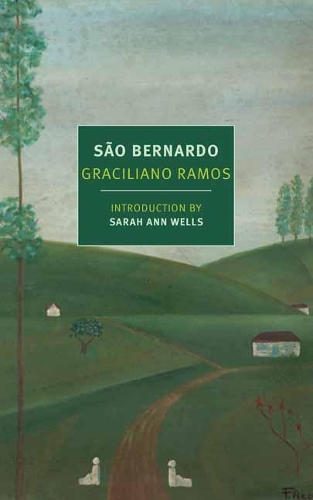
So Bernardo
(Paperback)
Publishing Details
So Bernardo
By (Author) Graciliano Ramos
By (author) Padma Viswanathan
New York Review Books
NYRB Classics
5th May 2020
United States
Classifications
General
Fiction
869.3/41
Physical Properties
Paperback
248
Width 127mm, Height 203mm
Description
A masterwork about backcountry life by one of Brazil's most celebrated novelists. In 1941, a national literary poll in Brazil named Graciliano Ramos one of the country's ten greatest novelists-one of only four living authors on the list. His reputation has only increased there in the sixty years since his death. Brazilian readers fight over which of his novels is their favorite. Now St. Bernardo, his second-to-last novel, has been freshly translated to English. This gritty, dryly funny book tells the story of Paulo Hon rio, a field hand who learns to read and write in jail, emerging with the ambition of buying and restoring to greatness the now-decrepit property where he was once a day laborer. St. Bernardo, named for his ranch, is the memoir of his rise and fall, written in his own rough-hewn voice. Flavored with subtle ironies and rich local idioms, St. Bernardo will appeal to readers of William Faulkner and Juan Rulfo, anyone who loves a tragicomic story of a striving outsider and self-made man, ruthless and tender in turns.
Reviews
Shortlisted for the UK Society of Authors' TA First Translation Prize
The complexities of life in rural Brazil come sharply into focus in So Bernardo. Nearly a hundred years after its publication, the funny, ruthless narrator of this novel is as fascinating and relevant as any narrator being written today. Idra Novey
I was swept up by the humor, cadence, beautiful weirdnessand above all the voice, relentless and a little nuts, of So Bernardo. Peter Orner
"Viswanathan, through her soulful translation, breathes new life into Ramoss slangy, unvarnished, beguilingly funny prose. Honorios voice might be gruff, but it also sings. Eric Puchner
If we were to take stock of Brazilian writers from the first half of the twentieth centuryfrom among those writers who produced the most relevant parts of their oeuvre in the first half of the twentieth centuryand ask which writer has had the greatest impact and influence on the way Brazilian writers write today, I have no doubt that the name of Graciliano Ramos would make the top of the list. Paolo Scott, Asymptote
This new translation of So Bernardo from the Brazilian Portuguese by Canadian writer Padma Viswanathan is as much a reiteration as it is a refashioning. . . . Viswanathan has made a precious contribution to the body of English-language literature, adding to it the vibrant voice of one [of] the most important figures of 20th-century Brazilian letters. Arthur Ivan Bravo, The Los Angeles Review of Books
Ribeyro . . . is mildly Borgesian in approach, bothstylish and imaginative. . . . Ramos' metier . . . is a kind of gnarled subtlety and rueful wisdom that lends a quirky,cannyelement to his appealing story. Paddy Kehoe, RT
Graciliano Ramoss So Bernardo is a quick read that grabbed me from the first paragraph.. . . Honrio is a fascinating character, and Ramos beautifully renders him through Honrios own elisions and incapacity to articulate. The Mookse and Gripes
Author Bio
Graciliano Ramos (1892-1953) was a writer, politician, and journalist. He spent most of his life in Palmeira dos ndios, in northeast Brazil, where he owned a general store and served as the mayor. In 1936, Ramos was arrested and imprisoned on a penal island. He was most likely suspected of being a Communist. After his release from prison, he published his most famous novel, Barren Lives. Sarah Ann Wells, a professor at the University of Wisconsin-Madison, is a scholar of Brazilian literature and cinema. Padma Viswanathan's debut novel, The Toss of a Lemon, has been published in eight countries and was a finalist for several prizes. Her second novel, The Ever After of Ashwin Rao, was a national bestseller in Canada and was short-listed for the Scotiabank Giller Prize. Her short fiction and nonfiction work has been published in several outlets, including Granta, the Boston Review, Elle (Canada), and Guernica. She teaches creative writing at the University of Arkansas.
